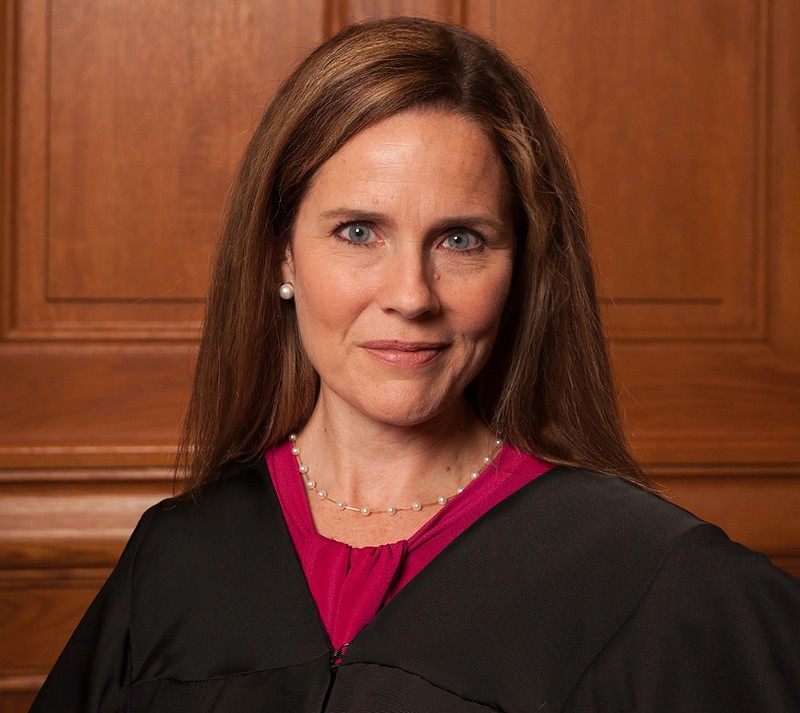“Abortion carries significant physical and psychological risks to the maternal patient, and these physical and psychological risks increase with gestational age,” Mississippi lawmakers declared in the Gestational Age Act of 2018, the 15-week abortion ban the Supreme Court’s conservatives will likely use to eviscerate Roe v. Wade.
Not that it matters, but none of this is true.
According to the American Psychological Association, abortion doesn’t increase a woman’s risk for depression, anxiety, or post-traumatic stress disorder — although women denied an abortion “are more likely to initially experience higher levels of anxiety, lower life satisfaction, and lower self-esteem.”
About those physical risks? Only 2% of abortions have complications, most of which are minor. In the U.S., the abortion mortality rate is 0.6 per 100,000. In Mississippi, giving birth is roughly 60 times more dangerous than having an abortion; the pregnancy-related mortality rate in 2016 was 33.2 per 100,000 live births, about four times the national average.
Mississippi didn’t fool District Court Judge Carlton Reeves, who called its “professed care in ‘women’s health’ … pure gaslighting.” In 2018, Reeves struck down the law. “No, legislation like H.B. 1510 is closer to the old Mississippi — the Mississippi bent on controlling women and minorities,” Reeves wrote.
Technically, Mississippi seems bent on controlling women who are minorities. Black women are more than five times as likely to get an abortion than white women, according to the state’s data. In Mississippi, Black women are also more likely to be affected by geographic, regulatory, and financial barriers to obtaining an abortion, face medical complications, or become pregnant as teenagers — all factors that lead to the later-term abortions the state wants to outlaw out of concern for their welfare.
Not only is Mississippi the country’s poorest state, but it has the highest poverty rate for working-age women, and Black people are nearly three times as likely to live in poverty as white people. Nearly a quarter of its residents lack health insurance. Mississippi has the country’s second-highest teenage birth rate, with Black teenagers about 50% more likely to give birth than their white peers. It also leads to children born to unmarried mothers, preterm births, low birthweight births, and infant mortality.
This is the vanguard of the “pro-life” movement.
I doubt anyone’s naive enough to think Mississippi lawmakers give a wet fart about poor Black women. But that’s irrelevant, as last week’s Supreme Court arguments made clear. If the Court kills Roe, 21 states’ dormant abortion bans will go into effect. Five more states could ban abortion soon after, according to the Guttmacher Institute. Together, they include the entire Deep South, save for North Carolina and Virginia, and most of the Upper Midwest — including Michigan and Wisconsin, where pre-Roe bans can be enforced.
Women with means will travel thousands of miles to obtain abortions. Women without will be compelled to carry their pregnancy to term. Amy Coney Barrett thinks they can dump their unwanted babies after giving birth, so problem solved — as if pregnancy and childbirth don’t pose physical risks or have real-life financial consequences.
Barrett doesn’t want Americans to see the Court as “a bunch of partisan hacks,” so she needs something to justify undoing a half-century of precedent. The safe haven laws that proliferated over the last two decades are apparently her best option. Of course, 15 years ago, Barrett went on record calling Roe “barbaric.” And when she told the Senate “It’s not possible” to say how she’d rule in an abortion case, she lied.
As Paul Waldman pointed out in The Washington Post, the conservative justices all lied during their confirmation hearings. Samuel Alito and Neil Gorsuch insisted their personal views wouldn’t affect their decisions. Clarence Thomas claimed he hadn’t discussed Roe with anybody, ever. Brett Kavanaugh and John Roberts said Roe was “settled as a precedent,” a position Kavanaugh especially seems to have reconsidered.
“The other side would say that the core problem here is that the Court has been forced by the position you’re taking and by the cases to pick sides on the most contentious social debate in American life,” Kavanaugh told Julie Rikelman, attorney for the Center for Reproductive Rights, “and to do so in a situation where they say that … the Constitution’s neither pro-life nor pro-choice on the question of abortion. And they would say, therefore, it should be left to the people, to the states, or to Congress.”
Rights aren’t subject to popular opinion. That’s what makes them rights — in this case, the right to liberty and physical autonomy guaranteed by the 14th Amendment. The Court’s conservatives want to turn that right into a privilege that legislatures can remove; their ruling will amount to a declaration that women can’t be trusted with decisions about their own pregnancies.
There will be one upside to the Court reversing Roe, however. We can stop pretending this Court isn’t an activist body whose decisions derive from its members’ partisan inclinations and far-right ideologies. And eventually, that leads to much-needed, sweeping judicial reforms — including expanding the Court and placing term limits on justices — as well as smaller measures such as establishing a code of ethics.
“Will this institution survive the stench that this creates in the public perception that the Constitution and its reading are just political acts?” Justice Sonia Sotomayor asked last week. “I don't see how it is possible.”
It isn’t. And if this is the direction the Court goes, that’s for the best.
Get Informed Dissent delivered to your inbox: billman.substack.com.
Stay connected with Detroit Metro Times. Subscribe to our newsletters, and follow us on Google News, Apple News, Twitter, Facebook, Instagram, or Reddit.



